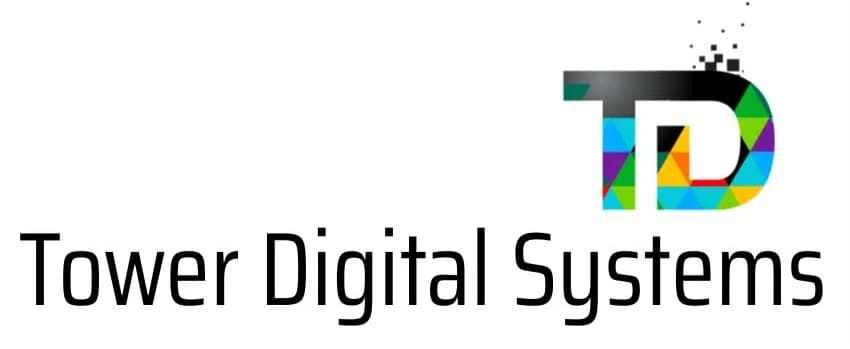The Importance of AI-Enhanced, Professional Website Design for Real Estate Agents
In the competitive world of real estate, your website is often the first point of contact between you and potential clients. A professional, well-designed website serves as your digital storefront, showcasing your listings, expertise, and unique value proposition.
Here's why a top-notch website is essential for real estate professionals:
Establishes Credibility and Trust
A polished, professional website instantly boosts your credibility in the eyes of potential clients. It demonstrates that you're invested in your business and serious about providing quality service.
In an industry where trust is paramount, this first impression can make or break a potential client relationship.
Showcases Your Listings
Your website is the perfect platform to highlight your current listings. High-quality photos, virtual tours, and detailed property descriptions can attract potential buyers and generate leads.
A well-organized property search function allows visitors to easily find listings that match their criteria, increasing the chances of a successful match.
Provides 24/7 Availability
Unlike traditional marketing methods, your website works for you round the clock. Potential clients can browse your listings, learn about your services, and contact you at any time, even outside of business hours. This constant availability can significantly increase your lead generation potential.
Offers Valuable Resources
Your website can serve as a hub of information for both buyers and sellers. By providing resources such as market reports, home buying guides, and local area information, you position yourself as an expert in your field and offer value to your visitors.
Key Elements of Effective Real Estate Website Design
Creating an effective real estate website involves more than just listing properties.
Here are some key elements to consider:
Clean, Professional Design
Your website's design should reflect the quality of your service. A clean, modern layout with a consistent color scheme and easy-to-read fonts creates a professional impression.
Avoid clutter and focus on presenting information in a clear, organized manner.
Intuitive Navigation
Make it easy for visitors to find what they're looking for. A logical menu structure and clear calls-to-action (CTAs) guide users through your site, whether they're searching for properties, looking for information about your services, or trying to contact you.
High-Quality Imagery
In real estate, visuals are key. Invest in professional photography for your listings and use high-quality images throughout your site. Consider incorporating virtual tours or 360-degree photos to give potential buyers a more immersive experience.
Fast Loading Speed
In today's fast-paced world, users expect websites to load quickly. Optimize your images, minimize HTTP requests.
With the majority of web browsing now happening on mobile devices, a mobile-first approach to web design is no longer optional—it's essential. Here's why mobile-first design is crucial for real estate websites:
Improved User Experience
A mobile-first design ensures that your website looks great and functions smoothly on smartphones and tablets. This improved user experience can lead to longer visit durations, lower bounce rates, and higher engagement.
Better Search Engine Rankings
Google uses mobile-first indexing, meaning it primarily uses the mobile version of a site for ranking and indexing.
A mobile-responsive website is more likely to rank well in search results, increasing your visibility to potential clients.
Faster Load Times
Mobile-first designs often lead to faster load times on all devices. This improved performance can boost user satisfaction and positively impact your search engine rankings.
Competitive Advantage
Despite the importance of mobile-friendly design, many real estate websites still aren't optimized for mobile devices. By adopting a mobile-first approach, you can gain a competitive edge in your market.
Local SEO is particularly important for real estate professionals, as most of your business likely comes from a specific geographic area. Here are some key local SEO strategies to implement:
Google Business Profile Optimization
Claim and optimize your Google Business Page listing. Ensure your business name, address, and phone number (NAP) are consistent across all online platforms. Regularly update your listing with posts, photos, and respond promptly to reviews.
Local Keyword Optimization
Incorporate location-based keywords into your website content, meta titles, and meta descriptions. For example, "luxury homes in Barrington" or "Lincoln Park real estate agent."
Create Location-Specific Content
Develop content that focuses on the areas you serve. This could include neighborhood guides, local market reports, or blog posts about community events. This type of content not only helps with SEO but also positions you as a local expert.
Build Local Backlinks
Develop relationships with local businesses, chambers of commerce, and community organizations. These relationships can lead to valuable local back-links, which can boost your website's authority in local search results.
Positive reviews on platforms like Google, Yelp, and industry-specific sites can significantly impact your local search rankings. Encourage satisfied clients to leave reviews and respond professionally to all reviews, both positive and negative.
Content Marketing for Real Estate Websites
Content marketing is a powerful tool for attracting and engaging potential clients. Here are some effective content marketing strategies for real estate professionals:
Blog Regularly
Maintain a blog on your website and post regularly about topics relevant to your target audience. This could include home buying tips, market updates, or showcases of local attractions. Regular, high-quality content can improve your search engine rankings and position you as an industry expert.
Create Valuable Resources
Develop downloadable resources such as e-books, checklists, or guides. These can serve as lead magnets, encouraging visitors to provide their contact information in exchange for the resource.
Use Video Content
Video is increasingly popular in real estate marketing. Consider creating virtual property tours, neighborhood showcases, or informational videos about the buying or selling process. Video content can increase engagement and provide a more immersive experience for potential clients.
Leverage User-Generated Content
Encourage satisfied clients to share their experiences through testimonials or success stories. This type of content builds trust and provides social proof of your expertise.
The Role of Social Media in Real Estate Marketing
Social media platforms offer powerful tools for real estate professionals to connect with potential clients and showcase their listings.
Here's how to leverage social media effectively:
Choose the Right Platforms
Focus on platforms where your target audience is most active.
Share Valuable Content
Don't just post listings. Share a mix of content, including local market updates, home improvement tips, and behind-the-scenes glimpses of your work. This varied content keeps your followers engaged and interested.
Use High-Quality Visuals
In real estate, visuals are key. Share high-quality photos and videos of your listings, and consider using tools like Facebook Live for virtual property tours.
Engage with Your Audience
Respond promptly to comments and messages. Engage in conversations and build relationships with your followers. This engagement can help build trust and loyalty.
Utilize Paid Advertising
Platforms like Facebook and Instagram offer sophisticated targeting options for paid ads. Use these to reach potential clients based on factors like location, interests, and behavior.
Measuring Success: Analytics and Conversion Tracking
To ensure your digital marketing efforts are effective, it's crucial to track and analyze your performance. Here are some key metrics to monitor:
Website Traffic
Track the number of visitors to your website, the pages they visit, and how long they stay. This can give you insights into which content is most engaging.
Lead Generation
Monitor how many leads your website generates. This could include contact form submissions, property inquiries, or newsletter sign-ups.
Conversion Rates
Track the percentage of visitors who take a desired action on your site, such as submitting a contact form or requesting a property viewing.
Search Engine Rankings
Keep an eye on your rankings for key search terms. Tools like Google Search Console can provide valuable insights into your search performance.
Social Media Engagement
Monitor likes, comments, shares, and click-throughs from your social media posts. This can help you understand what type of content resonates with your audience.
Staying Ahead: Emerging Trends in Real Estate Digital Marketing
To maintain a competitive edge, it's important to stay abreast of emerging trends in real estate digital marketing.
Here are some trends to watch:
Virtual and Augmented Reality
VR and AR technologies are becoming increasingly popular for virtual property tours, allowing potential buyers to explore homes from anywhere in the world.
Artificial Intelligence
AI-powered chatbots can provide instant responses to user queries, improving customer service and lead qualification.
Voice Search Optimization
With the rise of smart speakers and voice assistants, optimizing your content for voice search is becoming increasingly important.
Personalization
Using data to provide personalized property recommendations and content can significantly improve user experience and conversion rates.
Blockchain Technology
Blockchain has the potential to revolutionize property transactions, offering increased security and transparency.
By implementing these strategies and staying current with emerging trends, real estate professionals can create a powerful online presence that attracts and engages potential clients. Remember, your website is more than just a digital business card—it's a powerful tool for showcasing your expertise, generating leads, and growing your real estate business.
Tower Digital Systems can assist every step of the way. Whether you're a new Realtor just starting out or a seasoned pro looking to take your business to the next level, we can help. Call or Click Now.



